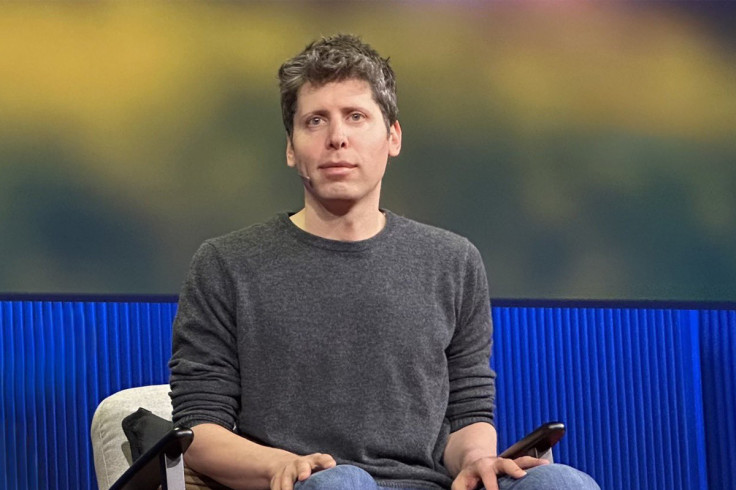Sam Altman Reveals Why Saying 'Please' Or 'Thank You' To ChatGPT Costs Millions Of Dollars
Many of these costs arise from user interactions that include polite phrases such as 'please' and 'thank you'

In a surprising revelation, OpenAI CEO Sam Altman has shed light on a seemingly innocuous habit that could cost the company a fortune. Your simple 'please' and 'thank you' to ChatGPT have a real-world dollar value attached, potentially impacting the future of AI interactions.
OpenAI's chief executive, Sam Altman, acknowledged that common polite phrases like 'please' and 'thank you' directed at their ChatGPT bot surprisingly add up expenses, leading to considerable electricity costs for the organisation.
The Energy Cost Of Politeness
Altman shared this information after a user on X inquired about how being courteous with AI could affect OpenAI's operational budget. He replied by mentioning that the expense amounted to 'tens of millions of dollars well spent', mysteriously adding, 'You never know.'
tens of millions of dollars well spent--you never know
— Sam Altman (@sama) April 16, 2025
AI assistants like ChatGPT use vast language models (LLMs) that depend on significant computing systems housed in data centres. These models need thousands of powerful GPUs to work effectively.
Why Do Chatbots Need So Much Power?
These GPUs handle immense parallel calculations to understand requests and produce answers instantly. Substantial electrical power is required to supply energy to these data centres.
Experts estimate that creating just one AI-generated reply, such as a brief email or paragraph, can use up to 0.14 kilowatt-hours (kWh) of energy—similar to the power needed to keep fourteen LED lights on for sixty minutes.
Total energy consumption becomes significant when multiplied by the billions of daily interactions. Worldwide, data centres already represent roughly 2% of all electricity used.
Given the swift growth of AI applications and the increasing need for generative AI services such as ChatGPT, specialists caution that this percentage could increase dramatically in the years ahead.
Some individuals might consider polite exchanges with chatbots as unneeded, but numerous AI specialists contend that courtesy substantially improves AI interactions.
Experts Weigh In On AI Politeness
Kurtis Beavers, a Microsoft Copilot's design group director, has supported respectful prompts, asserting that they 'help generate respectful, collaborative outputs.' In Beavers' view, courteous phrasing goes beyond just showing good etiquette; it actively affects the AI's responses, establishing a more productive and professional atmosphere for interaction.
'When it clocks politeness, it's more likely to be polite back,' states Microsoft WorkLab, an online magazine created by the tech company focused on incorporating AI in professional settings. According to the New York Post, showing courtesy toward AI has become increasingly widespread.
A 2024 study indicated that about 67% of users in America routinely use polite language when communicating with chatbots. Within that group, most individuals (55%) feel that being polite is the right thing to do. In comparison, an additional 12% jokingly mentioned that their courteous language safeguards against a possible AI uprising.
X Users React To OpenAI's ChatGPT Power Consumption
Altman's disclosure that courteous exchanges with ChatGPT contribute to electricity expenses totalling tens of millions of dollars has ignited a flurry of amusing and cautious reactions on the social media site X.
Although the revelation surprised many, numerous users digested the information with humour and a hint of suspicion. 'That's a small price to pay to feel safe when the apocalypse comes,' one user wrote.
This playful comment reflects a feeling shared in numerous posts: treating AI kindly might yield unforeseen benefits someday. Sharing comparable anxieties, another user quipped, 'We just want to ensure Skynet remembers we were polite as it decides if to use us as batteries or not.'
$6k ($3k reserved) to run a 30B language model in production per month
— anton (@abacaj) March 12, 2023
No wonder everyone is using ChatGPT pic.twitter.com/ssrpJPAgLf
This reference to the movies 'The Matrix' and 'Terminator' hints at a widespread concern about AI taking over, a worry subtly influencing everyday online behaviour. 'You never know if... they will appreciate it on Terminator 2 Judgment Day...?' another user added.
However, not all users were prepared to accept the approaching AI doomsday. One individual noted, 'I feel this can be solved incredibly easily with client-side code answering 'you're welcome' lol,' proposing a technological solution.
The intersection of AI courtesy and computational cost presents a fascinating challenge. As AI integrates into our daily lives, the balance between user experience and resource management will become increasingly critical. Whether politeness is a luxury or a necessity in our interactions with AI remains to be seen, but one thing is clear: how we speak to machines has real-world consequences.
Originally published on IBTimes UK
© Copyright 2025 IBTimes UK. All rights reserved.





















